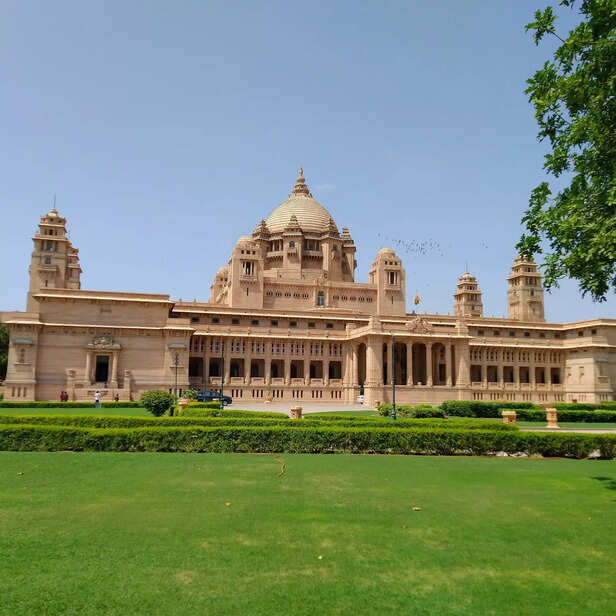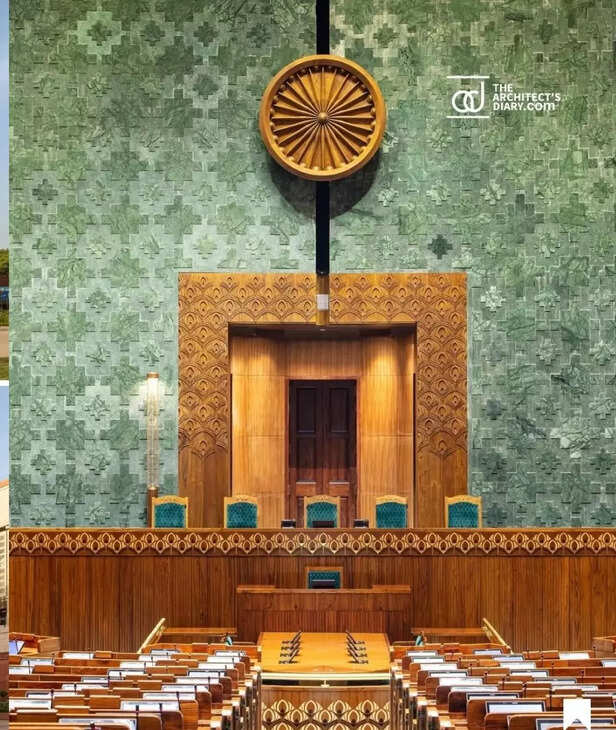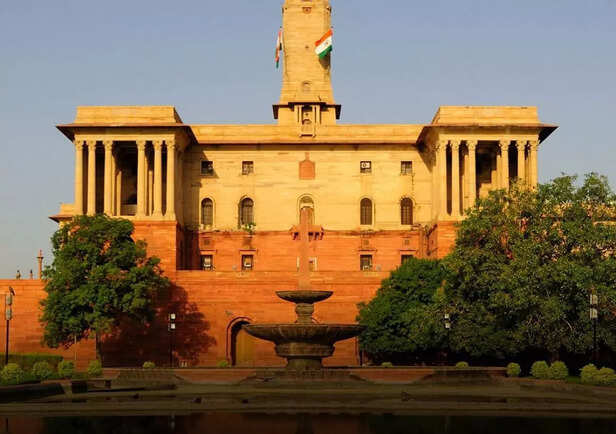Monsoon Session 2025: Why This Could Be Parliament’s Most Explosive Sitting Yet!
Ankita Rai | Jun 04, 2025, 15:58 IST
( Image credit : Pexels )
The Monsoon Session of Parliament 2025, scheduled from July 21 to August 12, is shaping up to be one of India’s most intense political showdowns. With Operation Sindoor’s military aftermath, an unprecedented impeachment motion against Justice Yashwant Varma, and a heated legislative agenda, the session promises high drama and deep debate. Tensions between the government and opposition are expected to flare, especially as the 50th anniversary of the Emergency adds historical weight. As critical bills and national security issues dominate, this session could test the strength and spirit of India’s democracy.
Since India's Monsoon Session of Parliament is slated from July 21 to August 12, 2025, political corridors are already buzzing with anticipation, controversy, and showdowns in the making. While parliamentary sessions are, by definition, intended to debate legislation and policy, this year's Monsoon Session could prove to be one of the most politically charged in recent history—thanks to its timing, its context, and its content. From the aftershocks of Operation Sindoor to a historic impeachment motion against a High Court judge, the session carries the burden of national security, judicial accountability, and the widening gap between the opposition and the ruling government. Here's a breakdown of what makes this session worth watching. Parliament will resume after over three months, with the Budget Session having concluded on April 4. During this period, India has witnessed seismic changes—both literally and figuratively. On the domestic front, the economy has presented contradictory signals, unemployment concerns have resurfaced, and border tensions have escalated. Globally, India's assertive military stance—particularly Operation Sindoor—has not only sparked geopolitical conversations but also raised fundamental questions about the extent of unilateral military decision-making. This Monsoon Session doesn't merely return to Parliament with a legislative agenda; it returns bearing the emotional and political weight of a nation bracing for transformation.

On May 7, India initiated Operation Sindoor, a surgical military operation targeting terror infrastructure in Pakistan and Pakistan-occupied Kashmir (PoK). It was a direct response to the Pahalgam terror attack on April 22, where 26 civilians were killed in what the government labeled a Pakistan-backed act of terror. While the operation received broad support from nationalist quarters, it also drew sharp criticism for bypassing parliamentary consultation. Opposition parties, including the Congress, TMC, and DMK, have voiced serious concerns about the lack of transparency, insufficient civilian oversight, and the possible long-term diplomatic consequences. Expect fiery exchanges in both the Lok Sabha and Rajya Sabha as the opposition prepares to question the ruling government on the decision-making process, foreign policy priorities, and whether constitutional checks and balances are being eroded.

Adding fuel to the fire is the expected impeachment motion against Justice Yashwant Varma of the Allahabad High Court. Though specific charges remain confidential, allegations concerning judicial conduct and ethics have reportedly been submitted. If admitted, this would mark one of the rarest impeachment proceedings against a sitting High Court judge in Indian parliamentary history. While judicial accountability is essential to a healthy democracy, the move’s timing and intent have already become subjects of intense scrutiny. Some critics suggest it is a political distraction, while others argue it is a long-overdue measure to uphold integrity within the judiciary. The motion could also deepen the ongoing friction between the judiciary and the legislature—a divide that has widened in recent years.

Beyond the headline-grabbing issues, the Monsoon Session is expected to address a range of important legislation. These include:

July 2025 marks 50 years since the declaration of the Emergency by then Prime Minister Indira Gandhi in 1975—an inflection point in India’s democratic journey. The current government is expected to observe the occasion with commemorations, statements, and pointed critiques of the Congress party’s legacy. The opposition, however, is preparing to push back, accusing the present government of orchestrating a “soft Emergency” through institutional suppression, media intimidation, and the misuse of investigative agencies. In many ways, the debate around the Emergency could reflect the larger ideological clash that now defines Indian politics.

The central question remains: can Parliament function smoothly in such a politically charged environment? With numerous emotionally sensitive topics on the agenda, the chances of disruption are high. The ruling alliance faces challenges not only from the opposition but also from within. Coalition partners may use the opportunity to negotiate for greater influence, while independents and regional players could sway discussions depending on how the debates unfold. For the opposition, the session is a strategic opportunity. With general elections approaching, every statement, disruption, and parliamentary exchange is a campaign moment in disguise. Expect strong rhetoric, calculated theatrics, and sustained political sparring.
The 2025 Monsoon Session is no ordinary sitting of Parliament—it is a litmus test for the government’s handling of national security, democratic values, and judicial oversight. As India positions itself on the global stage, its ability to uphold democratic processes at home becomes more important than ever. For the vigilant citizen, this session offers a front-row seat to democracy in action—imperfect, intense, often messy, but deeply necessary. Let the debate begin.
Unlock insightful tips and inspiration on personal growth, productivity, and well-being. Stay motivated and updated with the latest at My Life XP.
Operation Sindoor: A War Outside, and Within, Parliament

Picture credit : Instagram
( Image credit : Timeslife )
On May 7, India initiated Operation Sindoor, a surgical military operation targeting terror infrastructure in Pakistan and Pakistan-occupied Kashmir (PoK). It was a direct response to the Pahalgam terror attack on April 22, where 26 civilians were killed in what the government labeled a Pakistan-backed act of terror. While the operation received broad support from nationalist quarters, it also drew sharp criticism for bypassing parliamentary consultation. Opposition parties, including the Congress, TMC, and DMK, have voiced serious concerns about the lack of transparency, insufficient civilian oversight, and the possible long-term diplomatic consequences. Expect fiery exchanges in both the Lok Sabha and Rajya Sabha as the opposition prepares to question the ruling government on the decision-making process, foreign policy priorities, and whether constitutional checks and balances are being eroded.
Impeachment of a Sitting Judge: An Unprecedented Move

Indian Parliament
( Image credit : Pexels )
Adding fuel to the fire is the expected impeachment motion against Justice Yashwant Varma of the Allahabad High Court. Though specific charges remain confidential, allegations concerning judicial conduct and ethics have reportedly been submitted. If admitted, this would mark one of the rarest impeachment proceedings against a sitting High Court judge in Indian parliamentary history. While judicial accountability is essential to a healthy democracy, the move’s timing and intent have already become subjects of intense scrutiny. Some critics suggest it is a political distraction, while others argue it is a long-overdue measure to uphold integrity within the judiciary. The motion could also deepen the ongoing friction between the judiciary and the legislature—a divide that has widened in recent years.
Legislative Agenda: Bills and More

the monsoon is about to begin ( Picture credit : Instagram)
( Image credit : Timeslife )
Beyond the headline-grabbing issues, the Monsoon Session is expected to address a range of important legislation. These include:
- The introduction of a new Digital Data Protection Bill, raising alarms among privacy advocates.
- Proposed amendments to the Unlawful Activities (Prevention) Act (UAPA), aimed at streamlining counter-terrorism efforts but stirring civil liberty concerns.
- A draft of the Uniform Civil Code, which may enter committee discussions and later, open debate.
- Financial deliberations, including deficit control strategies and updated GDP growth projections. However, the sheer political heat surrounding the session could overshadow routine legislative work. Frequent adjournments and walkouts may become unavoidable.
Emergency's 50th Anniversary: Revisiting History, or Rewriting It?

Parliament of India (Picture credit : Instagram)
( Image credit : Timeslife )
July 2025 marks 50 years since the declaration of the Emergency by then Prime Minister Indira Gandhi in 1975—an inflection point in India’s democratic journey. The current government is expected to observe the occasion with commemorations, statements, and pointed critiques of the Congress party’s legacy. The opposition, however, is preparing to push back, accusing the present government of orchestrating a “soft Emergency” through institutional suppression, media intimidation, and the misuse of investigative agencies. In many ways, the debate around the Emergency could reflect the larger ideological clash that now defines Indian politics.
Will Parliament Work or Break?

House of Parliament
( Image credit : Unsplash )
The central question remains: can Parliament function smoothly in such a politically charged environment? With numerous emotionally sensitive topics on the agenda, the chances of disruption are high. The ruling alliance faces challenges not only from the opposition but also from within. Coalition partners may use the opportunity to negotiate for greater influence, while independents and regional players could sway discussions depending on how the debates unfold. For the opposition, the session is a strategic opportunity. With general elections approaching, every statement, disruption, and parliamentary exchange is a campaign moment in disguise. Expect strong rhetoric, calculated theatrics, and sustained political sparring.
Conclusion: A Test of Leadership and Democracy
The 2025 Monsoon Session is no ordinary sitting of Parliament—it is a litmus test for the government’s handling of national security, democratic values, and judicial oversight. As India positions itself on the global stage, its ability to uphold democratic processes at home becomes more important than ever. For the vigilant citizen, this session offers a front-row seat to democracy in action—imperfect, intense, often messy, but deeply necessary. Let the debate begin.
Unlock insightful tips and inspiration on personal growth, productivity, and well-being. Stay motivated and updated with the latest at My Life XP.
